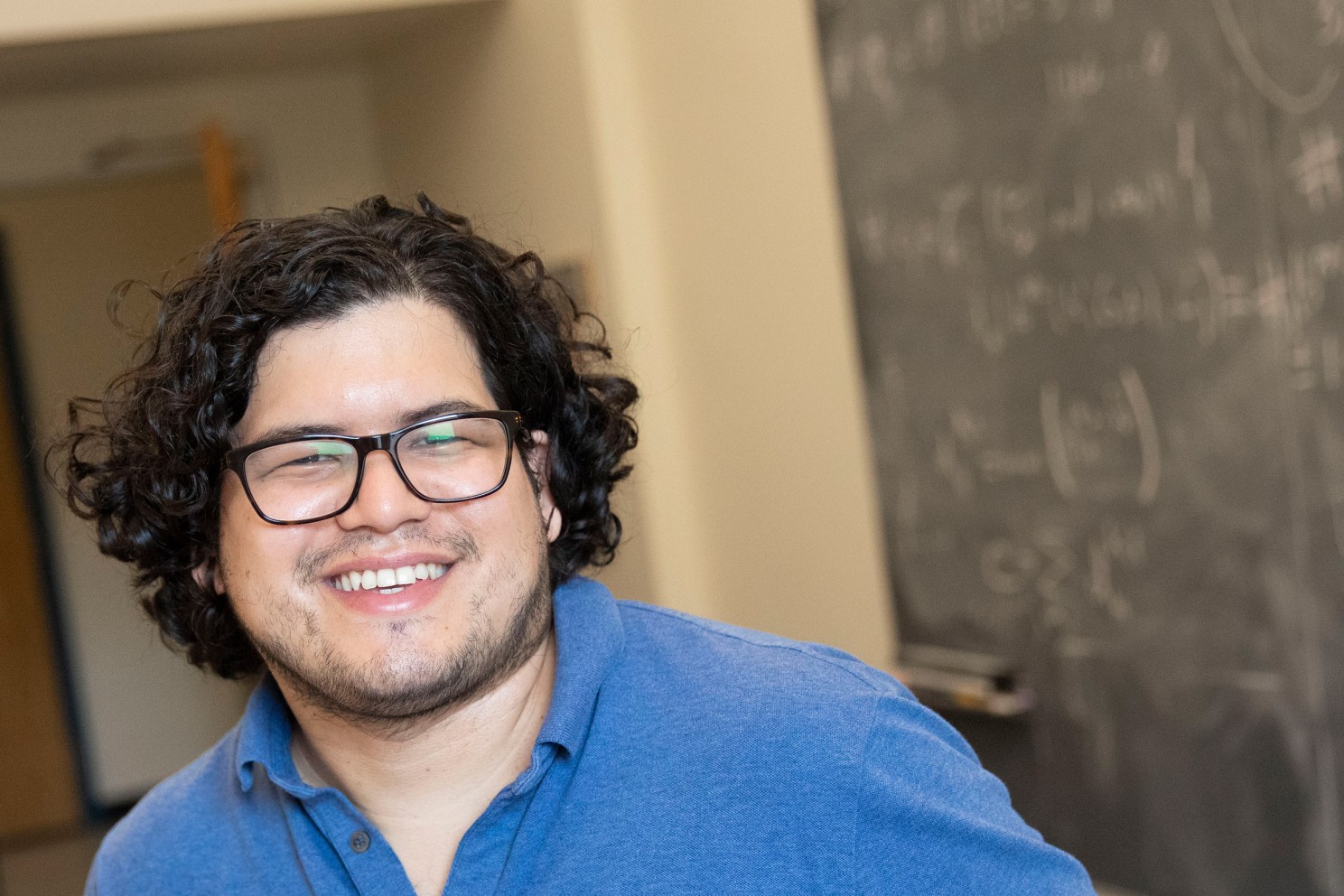Neutrino physicist Carlos Argüelles-Delgado named Packard Fellow

Kris Snibbe/Harvard University Photography
Carlos Argüelles-Delgado, assistant professor in the Department of Physics, is among the 2023 Packard Fellows for Science and Engineering, announced by the David and Lucile Packard Foundation this week.
Exploring “new frontiers of study,” Packard Fellows receive $875,000 over five years in unrestricted funds to pursue “blue-sky” research goals.
Argüelles-Delgado is on a quest to unlock longstanding mysteries about neutrinos, one of the universe’s most abundant but notoriously difficult to study fundamental matter particles. The researcher’s lab at Harvard is trying to understand how neutrinos – so light they were once thought to be massless – acquire mass as they fly through space and change between different types, or flavors.
“We do not know the origin of this mass – it’s actually a big mystery,” said Argüelles-Delgado, who joined the Harvard physics faculty in 2020. “It turns out that for neutrinos to have mass, you have to add new particles to our [Standard Model of Physics].”
Argüelles-Delgado is among physicists who postulate the existence of sterile neutrinos, elusive cousins to neutrinos that have never been directly measured but may explain neutrino mass. In the spirit of the Packard award’s push toward new frontiers, Argüelles-Delgado now proposes bold new approaches to uncovering the origins of neutrino mass.
One of these approaches is the detection of astrophysical tau neutrinos, which are from sources outside our galaxy and are less studied than other types of neutrinos. They think that the way these high-energy neutrinos enter specially designed detectors on Earth will reveal new particle physics.
“With more neutrino telescopes set to come online in the next five years, now is the perfect time to develop new tools that can significantly enhance our detection capabilities,” Argüelles-Delgado said.
One of those tools is a machine-learning algorithm their team is developing that can be applied to existing neutrino telescopes, improving detection capabilities and energy efficiencies. They will also apply such improvements to forthcoming neutrino telescopes, including planned upgrades to the IceCube Neutrino Observatory at the South Pole, where Argüelles-Delgado has extensively worked.
Finally, they will look to develop a neutrino data processing and storage system that will work with quantum computers.
“This is a really exciting field, because we are seeing the universe in a new way,” Argüelles-Delgado said.




